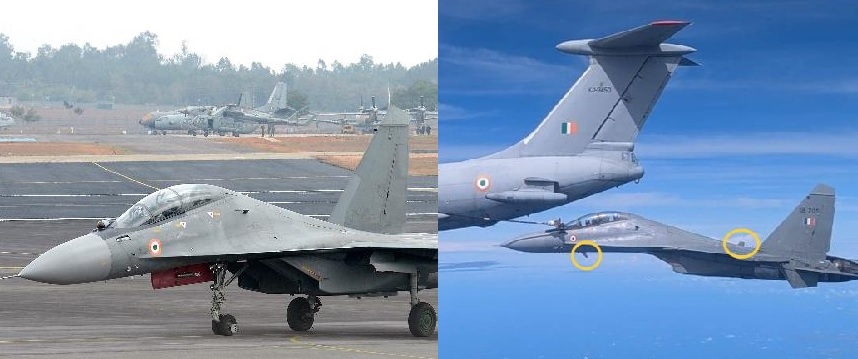IAF Upgrades Su-30MKI Fleet with Advanced Software Defined Radio Technology

The Indian Air Force (IAF) is taking a significant leap forward in modernizing its fleet of Su-30MKI fighter jets with the integration of cutting-edge Software Defined Radio (SDR) systems. This upgrade is set to enhance the IAF's communication and situational awareness capabilities, making its aerial operations more secure and effective.
Unlike traditional radios, which rely on fixed hardware, SDRs are essentially software-based. This fundamental difference allows SDRs to offer a range of advantages that traditional radios cannot match. SDRs are known for their flexibility and adaptability, as their operating characteristics are defined by software. This means they can be easily reprogrammed to support new frequencies, protocols, and encryption methods, ensuring that the IAF can stay ahead of evolving threats and communication needs.
One of the standout features of SDR technology is frequency agility. SDRs can operate across a wide spectrum of frequencies, which enables seamless communication across various networks. This is particularly important for the IAF, as it enhances interoperability not only within its own units but also with allied forces. The ability to quickly switch frequencies and protocols ensures that the IAF can maintain robust and secure communication links in dynamic and potentially hostile environments.
Enhanced security is another critical benefit of SDRs. With advanced encryption algorithms that can be programmed into these systems, SDRs provide secure communication channels that are resistant to jamming and interception. This level of security is crucial for modern air combat operations, where maintaining the integrity of communications can be the difference between mission success and failure.
Moreover, SDRs offer future-proofing advantages. As the technology evolves, new features and capabilities can be added through software updates, eliminating the need for costly hardware replacements. This adaptability ensures that the IAF's communication systems remain at the forefront of technological advancements without requiring frequent and expensive overhauls.
While the official supplier for the Su-30MKI's SDR systems has not been confirmed, industry experts speculate that Elbit Systems, an Israeli defense electronics company, is a leading contender. Elbit Systems has extensive experience in developing advanced SDR solutions for various combat aircraft, making them a natural fit for this upgrade. Their expertise and proven track record in the field suggest that they could provide the IAF with the reliable and sophisticated SDR systems it needs.
The integration of SDR technology into the Su-30MKI fleet is a significant milestone for the IAF. It promises to bolster communication capabilities, enhance situational awareness, and improve overall operational effectiveness. This move aligns with global trends in military aviation, where SDRs are becoming increasingly prevalent due to their versatility and adaptability.
While specific details about the Su-30MKI's SDR upgrade remain classified, it is clear that the IAF is committed to equipping its fleet with the most advanced communication solutions available. This upgrade represents a strategic effort to ensure that the IAF remains capable of meeting current and future challenges in aerial combat.
By embracing SDR technology, the IAF is not only enhancing its current operational capabilities but also laying the groundwork for future advancements. As the IAF continues to modernize and expand its capabilities, the integration of SDR systems into its Su-30MKI fleet marks a significant step forward in its journey towards becoming a more agile, secure, and effective air force.


